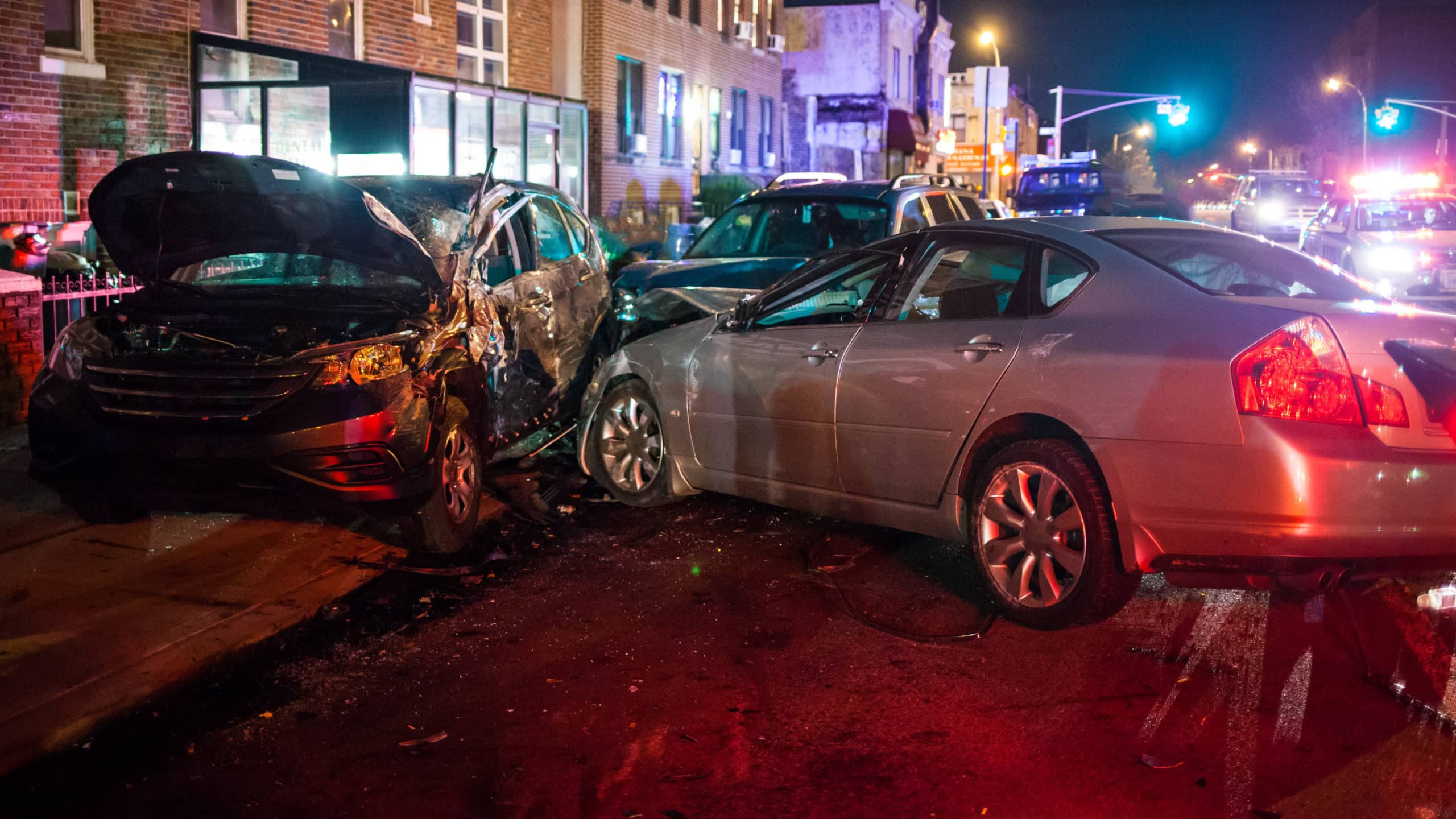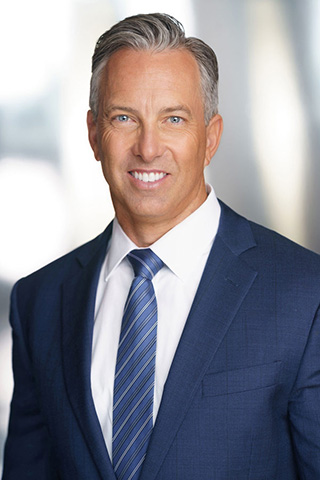
How to Describe a Car Crash for Lawsuits
When describing a car accident for lawsuits, it is important to be precise and accurate. This means providing as much detail as possible about the crash scene, the vehicles involved, and the injuries sustained by all parties involved. It is also important to be aware of any potential legal implications of your statements, and to seek legal counsel if necessary. How you speak and what you report could affect your medical attention, fair insurance claims, and recovery of compensation should a personal injury lawsuit become necessary.
Table of Contents:
- Safety First
- Gathering Evidence – Write It Down, Photos, Videos, Audio
- How to Speak with Paramedics after the Crash
- Describing Your Injuries & Symptoms to a Doctor
- How to Speak with Police Officers at the Accident Scene
- Describing Details to Insurance Companies
- Consulting with a Car Accident Lawyer
- Speaking to Others and Discussing Fault and Blame
- FAQs
- More Helpful Resources
Always Put Safety First After a Crash
Once you have safely stopped your vehicle, take a deep breath. Turn off the radio, tend to any other passengers in the vehicle, check yourself, and assess the inside of your vehicle. Even if the accident is minor, it can trigger a shock response and can cause injuries you may not be aware of immediately. If you or anyone in your vehicle is suffering from injuries that need medical attention, call 911 immediately.
Suppose there are no immediate injuries to you or your passengers. In that case, it is advisable to call or text an emergency contact to let them know you’ve been in an accident, that you’re alright, and alert them to your current location.
Gathering Evidence and Creating a Personal Record of the Crash and Injuries
When it’s time to describe the details of your crash and injuries, remember that evidence immediately begins to disappear, and memories can be impacted with time.
As soon as you can, take a moment to write down every detail and action immediately before, at the time of, and just after the accident. Use these questions as a checklist:
- What lane were you in?
- Did you check your mirrors, and if so, did you see anyone in your path?
- Did you notice other cars around you?
- Did you notice large vehicles or construction on the street?
- How fast were you traveling right before the accident?
- How did the accident feel to you?
- What did you notice about the damage to your car?
- What did the other driver(s) say to you?
- What injuries or pain are you noticing?
Sometimes you’ll have a very clear picture of everything that happened, which will help with claims and litigation. And even if you don’t have a lot of details or information to write down, still take the time to write as much as you can. These details, if written right after the accident, are considered a contemporaneous account of the accident and are usually admissible in court as evidence.
Details About Other Drivers and Vehicles
Take down the information of other drivers and vehicles involved in the accident. If it is safe, exit your vehicle and take down the license plate number, car model and make, and color of all other vehicles involved. You also have a right to request the insurance and contact information of each driver involved. If you do not feel safe taking this step, you can call the police to assist you in obtaining this information. Also, make sure to note if there were other passengers in the car, including any pets or other visibly large items that might obstruct someone’s view.
It may be helpful to collect important information using an audio recording app on your smartphone.
Collect Photos and Record Videos
If you have a mobile device, take photos of your vehicle and all the other vehicles involved in the incident. Photos of damage you can see immediately will be helpful, but photos of the entirety of each vehicle could also prove very useful in the claims and trial process. Photos taken just after the incident can disprove later damage caused to a vehicle that is not connected to this impact. Capture the details of the location, including street signs and road markers, where possible.
Video of the vehicles is also helpful as these provide another angle and more ways of assessing damage caused in the incident. Videos could catch defects, like a taillight that isn’t working.
While photos and videos taken days or weeks after the incident can be useful, the best evidence is collected right after the accident. Photos and videos can also provide a background for the setting of the accident:
- Was it a sunny day, or was the road wet from recent rain?
- Was it late at night with little lighting, or perhaps this is a very busy location?
All of these details can be important, and taking pictures and videos can provide evidence for claims and litigation support that you may not have thought of at the time of the accident.
How To Speak to Paramedics After a Car Accident
If you are involved in a car accident, it is important to know how to speak to the paramedics. Paramedics are trained professionals who can provide emergency medical care and save lives.
When the paramedics arrive, you should be calm and cooperative. Do not panic or try to leave the scene of the accident. Stay in your vehicle until the paramedics have checked on you and cleared you for departure. With severe injuries, this may not be possible. If you are injured, tell the paramedics where the pain exists and how bad it hurts. Be specific about your injuries. Do not guess or estimate. The paramedics will need to know all of your symptoms in order to provide appropriate treatment.
Here are some things that you share with paramedics:
- I hit my head
- I feel pain in my neck
- I can’t move my arms or legs
- I think I may have temporarily lost consciousness
- The airbags went off
- I was thrown from the car
- My seat belt was tight
- My chest hurts
- I’m having trouble breathing
If any of the above occurs, tell the paramedics right away. These could be signs of a severe injury, heart attack, or other medical problems.
Accurately Describing Symptoms to Your Doctor
When you’ve been in a car accident, it’s important to tell your doctor about all of the symptoms you’re experiencing. Some people may try to downplay their injuries, but it’s crucial to be completely honest with your doctor so that they can properly treat you.
Be sure to mention any pain or discomfort you’re feeling, even if it doesn’t seem related to the accident. And let your doctor know if you’re having any trouble sleeping or if you’re feeling overwhelmed or stressed.
Keep in mind, a doctor’s medical report about your injuries may be included as evidence in a personal injury lawsuit. Be sure to disclose all symptoms you are experiencing, even if they do not feel like significant issues. Remember, the onset of injury symptoms may sometimes be delayed after physical trauma.
Reporting Your Accident and Injuries to a Police Officer
The California Department of Motor Vehicles makes it clear about the requirements for filing a police report after a car accident: “If you are involved in a vehicle collision–STOP. If you don’t stop, you may be convicted of a “hit and run” and could be severely punished [1].”
If your health permits, after a crash with injuries, you should be prepared to take the following actions and to provide the following details:
- Call 9-1-1 immediately to report a collision with injuries to the police or Highway Patrol
- Provide your name, address, and registration information to the other drivers involved or to the officers at the scene of the accident
- Provide assistance to any injured people by calling for help
Police Officers will include these additional details that can be retrieved when requesting the police report:
- The date and time of the accident
- The location of the accident
- Names of any drivers involved in the accident
- License plate numbers of any drivers involved in the accident
- Description of the accident from those involved, eyewitnesses, and the officer’s own personal account
If possible, ask the police officer for a business card and have them include the incident or report number, so you retrieve it when needed.
If the accident is minor, there are no injuries, and you’re able to obtain each person’s contact and insurance information, you may not need to call the police. You should call the police if the damage to vehicles is major and requires towing, vehicles are blocking the roadway, there are any major injuries (also call 911 for an ambulance), or if you feel unsafe or are unable to obtain the other driver’s information.
If the other driver(s) take off, DO NOT CHASE THEM. Call the police immediately and provide a description of the vehicle, the driver, the accident that occurred, and your current location. Pursuing another driver can be dangerous to you and others in the area, and most insurance covers hit-and-run situations.
How to Speak with Insurance Companies After a Car Accident
Speaking with insurance agents after a car accident can be difficult, but following these tips will help make the process easier:
- Always be polite and respectful
- Make sure you have all the information ready before you engage in the conversation
- Take your time and don’t rush through the exchange
- Remain calm
Whether or not you are speaking with your insurance company or the insurers of other drivers involved, remember to refrain from lying, which could make a personal injury case, should it become necessary, nearly impossible to win. It’s OK to say, “I don’t know,” and it’s important to consider having a car accident attorney with you during the process to protect the integrity of any injury lawsuit claims.
Discussing Your Crash & Injuries with a Car Accident Attorney
The car accident injury lawsuit process begins with a confidential conversation and review of the details of your case during a free consultation call or visit. Because these conversations are protected, you can remain confident sharing the full details of your injuries, damage and emotional state, and details of how you believe the accident occurred.
Not all accidents require the help of an experienced car accident attorney. However, if you’ve been injured, your claim has been denied, or you are dealing with a driver who left the scene of the accident without providing information, an attorney’s assistance could be vital to your recovery.
Personal injury attorneys handle a wide range of car accidents and can assist even with minor accidents. Consulting with a local attorney may also provide you with the peace of mind and confidence you need to move forward with your daily life while someone else represents your best interests and needs.
Speaking About Fault & Blame After the Accident
When speaking to other drivers, your passengers, the police, claims handlers, and even your friends after an accident, it’s crucial how you choose your words and what details you disclose. To echo Miranda rights used in criminal cases, “anything you say can and will be used against you in a court of law.” More times than not, this applies to personal injury civil lawsuits as well.
The way you describe the accident to others may make a considerable impact on the outcome of your claim. First, and most importantly, never say, “I’m sorry,” or “This was all my fault.” It’s natural to feel like apologizing, even when you know it’s not your fault. Even if it was your fault, keep it simple, ask if everyone is ok, get the information, and let your insurance handle it from there.
Other passengers, other drivers, and even the police who hear you apologizing may interpret that as a feeling of responsibility for the accident. This is also important when speaking with insurance companies, as they also use your statements to assess the claims.
It is similarly wise to refrain from blaming another driver at the scene of the accident. This can cause already tense emotions to boil over and may create a safety risk for you. If you feel the accident is the fault of another driver, write it down in your contemporaneous notes, tell the police, tell the ambulance, and tell the insurance claims handlers.
Be Very Cautious About What Your Share on Social Media
In this modern world, it’s common for us to share the events of our lives immediately and to everyone on social media, by texting, and by phone. While there is no restriction on sharing information or photos with friends and social media, just remember that anything you post, text or even email about the accident or your injuries, could be used to assess the claim. So take extra care when deciding what information to share about an accident with anyone you speak with.
Frequently Asked Questions About Describing a Car Accident
If I Think The Car Accident Is My Fault, Should I Say So?
Refrain from admitting fault after a car accident, especially in the immediate aftermath. Sometimes new evidence may reveal poor road conditions, defective tires, or unclear road signs that could factor into who is liable for the crash.
Why Should I Consider Speaking with a Car Accident Attorney When I’ve been injured?
A review of your personal injury case is free and confidential. Car accident law firms have the resources to provide accident reconstruction and will fight to obtain the justice and compensation you deserve and may need to pay for medical bills, lost wages, future lost income, pain & suffering, and more.
The Insurance Company Has Offered Me a Settlement Check. Should I Accept it?
Keep in mind, insurance companies operate as businesses with the intention to save money and pay out the least amount possible for your car accident injury claim. It’s wise to consult with a car accident law firm before accepting a settlement check. Once you accept their money and cash that check, your case is typically over with no ability to bring future legal action against responsible parties.











